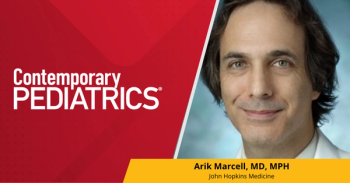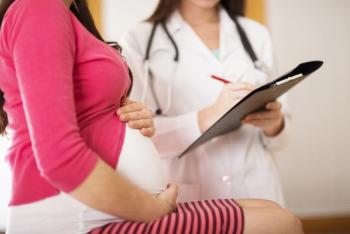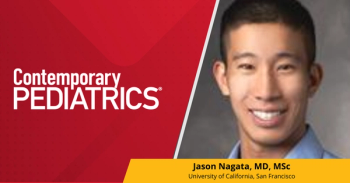
Are physicians missing the chance to recommend HPV vaccines?
Physicians who opt against recommending HPV vaccination because they assume their patient is too young or not sexually active, or that the parent will refuse, are missing an opportunity to protect against a dangerous virus, according to a new study.
The University of Colorado School of Medicine is located in Aurora, Colorado, on the Anschutz Medical Campus. Contemporary Pediatrics regrets the error.
Physicians who assume parents will defer or refuse human papillomavirus (HPV) vaccinations for their preteenagers may be missing their chance to guard against the virus, according to a new study.
Well visits decline in frequency in the later teenaged years and, although physicians and parents may not see a need for HPV vaccination at 11 or 12 years of age as recommended, failing to offer education or recommendation for the vaccine is putting adolescents at risk, says Mandy A Allison, MD, MSPH, assistant professor of pediatrics at the University of Colorado School of Medicine in Aurora and the Children’s Hospital of Colorado in Aurora, lead author of a
“Some pediatricians and family medicine physicians aren’t discussing the HPV vaccine at the 11- to 12-year-old well-child check because they think the patient is too young or expect the parent to refuse the vaccine for their child,” says Allison.
However, Alison says studies suggest that if physicians discuss the HPV vaccine, parents are less likely to refuse than the physician may expect.
The HPV vaccine is recommended at age 11 to 12 years because it is most effective if given before the child becomes exposed to the HPV virus, [because] other vaccines are recommended at this visit, and children are less likely to come in for well visits when they are older, Allison says. In addition, data suggests that the immune response to the HPV vaccine is stronger in children compared to adults.
“Primary care physicians should discuss the HPV vaccine with parents and children at every 11- to 12-year-old well-child check so they don’t miss an opportunity to protect their patients from cancers caused by the HPV virus,” Allison says.
More than 170 types of HPV have been identified; 15 are carcinogenic; and 40 are transmitted through sexual contact. While most HPV infections don’t cause disease, high-risk HPV infections are the cause of nearly all cases of cervical cancer. An estimated 12,900 cases of cervical cancer will be diagnosed this year, and more than 4000 could die as a result.
Human papillomavirus causes premalignant and malignant lesions of the cervix, vagina, vulva, anus, penis, and oropharynx, and can also cause genital warts. It is also believed to be the cause of about 5% of cancers worldwide.
The American Academy of Pediatrics (AAP)
The vaccine is given over a 3-dose regimen, with the second and third doses given at 2 and 6 months, respectively. The rate of adverse events is low, and typically limited to reactions such as injection site pain, swelling, erythema, itching, and some headaches.
The Centers for Disease Control and Prevention (CDC) notes that despite ongoing educational efforts, adoption of routine vaccination against HPV is still low in the United States.
Nationwide, 4 out of 10 adolescent girls and 6 out of 10 adolescent boys have not started the series, despite the CDC’s recommendation that both genders receive the vaccination around 11 to 12 years of age.
Older females were more likely to both begin and complete the HPV series, according to CDC. A few pockets of the country saw significant increases in HPV vaccination rates, says CDC, and those areas employed combination strategies, incorporating a push for HPV vaccination into cancer prevention programs, immunization programs, and other public communications.
About 60% of 13- to 17-year-old girls have had at least 1 dose of the HPV vaccine, and 40% have had all 3 doses, but for boys, those statistics are 42% and 22%, respectively.
The number of males and females in this age group who received the HPV vaccine
While low HPV vaccination rates have historically been blamed on
Sixty percent of pediatricians and 59% of family physicians strongly recommended the vaccine to 11- and 12-year-old girls, as recommended, and 52% of pediatricians and 41% of family physicians strongly recommended the vaccine for boys, according to a recent study published in Pediatrics. Roughly 84% of pediatricians and 75% of family physicians say they discuss the vaccine at 11- and 12-year-old well-child visits. Family physicians were more likely to skip the HPV talk, with 18% admitting that they only occasionally or rarely discussed the vaccine.
More than half of the physicians polled say about a quarter of parents declined the vaccination.
“Missed opportunities” to administer the vaccine are common, according to the study, and reasons given for not administering the vaccine can include financial strain and patient or parent refusal, but Allison says the culture of many physician practices contributes to these missed opportunities.
Currently, 99% of pediatricians and 87% of family physicians administer the vaccine to girls aged 11 to 18 years, and 98% of pediatricians and 81% of family physicians administer the vaccine to boys.
Stronger recommendations for the vaccine were made to older age group patients, according to the study, and physicians were more likely to recommend the vaccine to girls over boys.
As far as parent refusal, physicians say parents more often refused the vaccine in the recommended 11- to 12-year-old age group than in the 13- to 15-year-old age group, and slightly more parents of boys refused the vaccine in the older age group. Refusal rate differences between the parents of boys and girls did not significantly differ in the 11- to 12-year old group.
In cases of refusal or deferral, 88% of pediatricians and 67% of family physicians reported they were very likely to recommend the vaccine again at a later visit in cases of deferral. Only 2% of pediatricians and 10% of family physicians says they would not or weren’t likely to recommend the vaccine again.
While 67% of pediatricians and 50% of family physicians reported discussing HPV vaccination witj 11- and 12-year-olds, those that did not had a variety of reasons ranging from “I know the patient is not yet sexually active” (54%); “I think the patient is too young” (38%); “the patient is already getting other vaccines at that visit” (35%); and “I expect the parents to refuse” (29%).
“Although most [physicians] administer the HPV vaccine, more than one-third are not strongly recommending this vaccine at age 11- to 12-years and are less likely to strongly recommend the vaccine for boys. Similarly, one-third of pediatricians and one-half of family physicians do not always discuss HPV vaccination at the 11- to 12-year-old visit,” according to the report, which cites concerns about waning immunity and expectations of parent refusal or deferment as top reasons physicians don’t recommend the vaccine.
The report also points out that the populations most at risk for not receiving the vaccine are white children from higher income households.
“Compared with girls whose parents had neither delayed nor refused the HPV vaccine, girls whose parents had delayed the vaccine were more likely to be non-Hispanic white, live in a higher income household, and not be Vaccines for Children Program entitled,” Allison notes. “Although we cannot compare our results regarding physicians’ perceptions of parental delay directly with the data from the National Immunization Survey–Teen, our findings were similar in that physicians in private practice, with a higher percentage of patients with private insurance, and a higher percentage of non-Hispanic white patients were more likely to report parental deferral than other physicians.”
The study calls for increased education among physicians about the best time to administer the vaccine, and a reminder to not make assumptions about a patient’s sexual behavior or the perception of parents. Physicians are not always the best judge of what parents believe, Allison says.
“A recent study asked parents to rank the importance of several vaccines on a scale of 0 to 10 and then asked healthcare providers to estimate parental responses. The median ranking from parents for the HPV vaccine was 9.3, which was similarâ¨to their rankings for other vaccines,” Allison notes. “However, the median physician estimate of parental ranking for the HPV vaccine was 5.2, which was considerably lower than physician estimates for other vaccines (mostly >9).
“Physicians’ perceptions are important for vaccine delivery because physicians who perceive that parents are likely to defer HPV vaccination are less likely to discuss the vaccine at the 11- to 12-year-old visit based on findings from our study and others,” Allison says. “If physicians do not discuss the vaccine, they have no opportunity to provide a strong recommendation or to understand and address parents’ knowledge gaps or to elicit concerns.”
Newsletter
Access practical, evidence-based guidance to support better care for our youngest patients. Join our email list for the latest clinical updates.

![Jodi Gilman, PhD, on cumulative prenatal adversity linked to adolescent mental health risk Document Jodi Gilman, PhD, on cumulative prenatal adversity linked to adolescent mental health risk Live? Do you want this document to be visible online? Scheduled Publishing Exclude From Home Page Do you want this document to be excluded from home page? Exclude From Infinite Scroll Do you want this document to be excluded from infinite scroll? Disable Related Content Remove related content from bottom of article. Password Protection? Do you want this gate this document? (If so, switch this on, set 'Live?' status on and specify password below.) Hide Comments [Experiment] Comments are visible by default. To hide them for this article toggle this switch to the on position. Show Social Share Buttons? Do you want this document to have the social share icons? Healthcare Professional Check Is Gated [DEV Only]Do you want to require login to view this? Password Password required to pass the gating above. Title Jodi Gilman, PhD, on cumulative prenatal adversity linked to adolescent mental health risk URL Unique identifier for this document. (Do not change after publishing) jodi-gilman-phd-on-cumulative-prenatal-adversity-linked-to-adolescent-mental-health-risk Canonical URL Canonical URL for this document. Publish Date Documents are usually sorted DESC using this field. NOTE: latency may cause article to publish a few minutes ahead of prepared time 2026-01-19 11:52 Updated On Add an updated date if the article has been updated after the initial publish date. e.g. 2026-01-19 11:50 Article Type News Display Label Author Jodi Gilman, Phd > Gilman, Jodi Author Fact Check Assign authors who fact checked the article. Morgan Ebert, Managing Editor > Ebert, Morgan Content Category Articles Content Placement News > Mental, Behavioral and Development Health > Clinical AD Targeting Group Put the value only when the document group is sold and require targeting enforcement. Type to search Document Group Mapping Now you can assign multiple document group to an article. No items Content Group Assign a content group to this document for ad targeting. Type to search Issue Association Please choose an issue to associate this document Type to search Issue Section Please choose a section/department head if it exists Type to search Filter Please choose a filter if required Type to search Page Number Keywords (SEO) Enter tag and press ENTER… Display summary on top of article? Do you want display summary on top of article? Summary Description for Google and other search engines; AI generated summary currently not supporting videos. Cumulative prenatal adversities were linked to higher adolescent mental health risk, highlighting the importance of prenatal history and early clinical monitoring. Abstract Body *********************************************************************************************************** Please include at least one image/figure in the article body for SEO and compliance purposes ***********************************************************************************************************](https://cdn.sanity.io/images/0vv8moc6/contpeds/e6097cb5e6d6c028c0d4e9efd069e69fdab6d00b-1200x628.png?w=350&fit=crop&auto=format)






